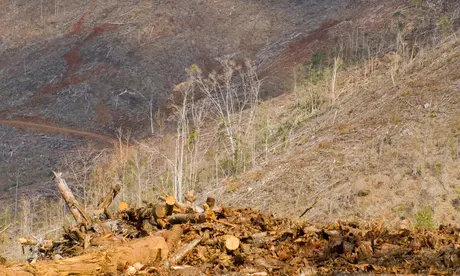A first-of-its-kind report from conservationists has shown that major food companies in Australia are roundly failing to set adequate targets to reduce their impact on nature and most are not assessing how their supply chains are hitting the environment.
According to reports, the Future of Food report from the Australian Conservation Foundation (ACF) assessed 20 major food companies across 37 different indicators, from deforestation and pollution to transparency and governance. Targets to halt damage to nature were “severely lacking”, the report said, and none of the five biggest beef buyers had deforestation targets in line with international best practice.
No company had carried out a risk assessment of their impacts and dependencies on nature, and no companies had science-aligned targets to cut either water use or freshwater pollution.
The report show that the findings were an “urgent call to action to Australia’s food businesses to step up to the plate”.
“We know half of Australia’s economy is dependent on nature, and food companies are among the most dependent. If they’re not addressing these issues, it will come back to bite them,” said Bonnie Graham, the lead author of the report and a corporate campaigner at ACF.
Read also: Campaign group warns six million people at risk from extreme heat in England
“Companies are just vastly underprepared to assess nature issues in their supply chains. It is clear companies are not addressing nature at this point, it’s clear also that they’re not aware of these either at a board level or through their governance.”
To make its assessment, ACF looked at international best practice across five categories, including targets for nature and pollution and how transparent companies are with disclosures, using standards set by organisations such as Science Based Targets Network, the World Benchmarking Alliance and the International Union for the Conservation for Nature.
Each company was given a percentage score. The three highest scorers were Nestlé (47%), Unilever (32%) and Fonterra (31%).
The three lowest scorers were Hungry Jacks (0%), Sanitarium (0%) and Patties Foods (1%).
Coles scored 28%, Woolworths 26% and Aldi 11%. Aldi was the only supermarket to have a deforestation target that was aligned to international best practice.
Most companies couldn’t track the source of the ingredients they were using and there was a “severe deficit” of company board members with nature expertise, the report said.
“There’s a huge opportunity for companies to position themselves as industry leaders,” Graham said.
Story was adapted from the Guardian.
